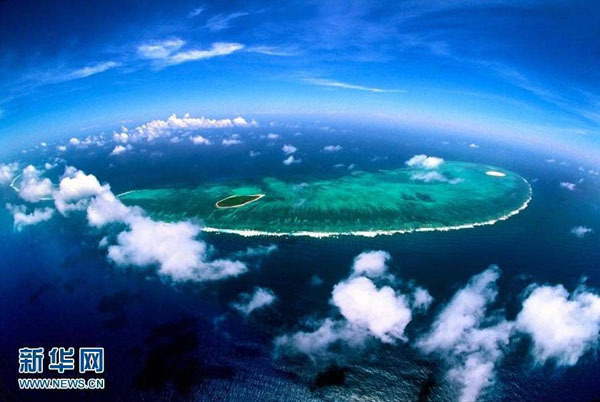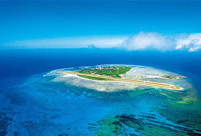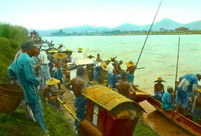


BEIJING, April 29 -- The Philippines, distorting and partially applying the United Nations Convention on the Law of the Sea (UNCLOS), attempts to challenge China's sovereignty over the Nansha Islands.
In its unilaterally-initiated arbitration, the Philippines argues that low-tide elevations and submerged reefs are part of the exclusive economic zone and continental shelf, a claim that totally runs contrary to historical fact, reality and international law.
First of all, the Nansha Islands have been inherent Chinese territory since ancient times.
Chinese activities in the South China Sea date back to 2000 years ago.
China was the first country to discover, name and exploit the resources of the South China Sea islands. China was also the first country that exercised and has continuously exercised sovereign rights and jurisdiction over the islands.
In 1946, the Chinese government resumed exercise of sovereignty over the South China Sea islands and reefs from foreign powers that had occupied them, and re-erected a monument of sovereignty on the main island.
In 1947, China made public the old and new name table of the South China Sea islands and the "South Sea Islands Location Map," declaring China's territorial and maritime demarcation.
Secondly, the Philippines intentionally disregards the integrity of the Nansha Islands as a geographic and territorial unit, and divides the islands into isolated units instead.
Thirdly, the provisions concerning exclusive economic zones and the continental shelf jurisdiction within the UNCLOS grant coastal states broad rights to facilitate development, exploration and research in related waters, but not the right to undermine another country's sovereignty.
When China regained its sovereignty over the Nansha Islands, the continental shelf provision was in the process of being drawn up; therefore, the establishment of China's sovereignty over the islands occurred a lot earlier than the forming of the continental shelf delimitation.
Last but not least, there is no definite legal principle regarding the appropriation of low-tide elevations, where the Philippines claimed that such areas should not be appropriated.
So far, the rulings of the International Court of Justice about the appropriation issue have been inconsistent and self-contradictory.
 Beijing Style: ready for bare legs
Beijing Style: ready for bare legs Top 10 Asian beauties in 2016
Top 10 Asian beauties in 2016 Amazing scenery of Xisha Islands
Amazing scenery of Xisha Islands Enthusiasts perform Kung Fu at Wudang Mountain
Enthusiasts perform Kung Fu at Wudang Mountain Stunning photos of China's fighter jets in drill
Stunning photos of China's fighter jets in drill Old photos record the change of Sichuan over a century
Old photos record the change of Sichuan over a century Asia's longest and highest suspension bridge to open to traffic
Asia's longest and highest suspension bridge to open to traffic China's first interactive robot looks like a beauty
China's first interactive robot looks like a beauty Vietnamese Su-30 fighters fly over Nanwei Island in South China Sea
Vietnamese Su-30 fighters fly over Nanwei Island in South China Sea Top 20 hottest women in the world in 2014
Top 20 hottest women in the world in 2014 Top 10 hardest languages to learn
Top 10 hardest languages to learn 10 Chinese female stars with most beautiful faces
10 Chinese female stars with most beautiful faces China’s Top 10 Unique Bridges, Highways and Roads
China’s Top 10 Unique Bridges, Highways and Roads Showy knife skills make for edgy TV
Showy knife skills make for edgy TV  Cross-Straits relations face a reversal
Cross-Straits relations face a reversal  Officials’ relatives banned from business in four new regions
Officials’ relatives banned from business in four new regions  Death of Mei Baojiu triggers concern for the future of Peking Opera
Death of Mei Baojiu triggers concern for the future of Peking Opera Day|Week